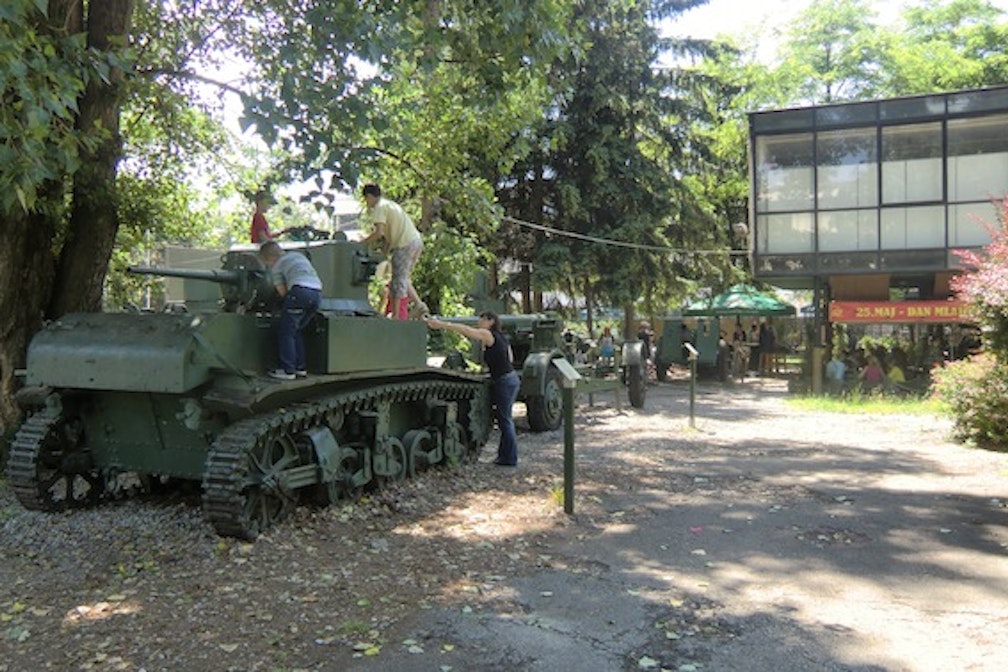Letters form the Balkans #03: Ideas

In the Epilogue to her Black Lamb and Grey Falcon , Rebecca West criticizes English literature for not taking ideas seriously. Specifically she writes that English authors “write of ideas as if they were things to pick and choose, even though the choice might be pushed to the extremity of martyrdom… But that ideas are the symbols of relationships among real forces that make people late for breakfast, that take away their breakfast, that make them beat each other across the breakfast-table, is something which the English do not like to realize. Lazy, bone-lazy, they wish to believe that life is lived simply by living.” Mrs. West’s “breakfast” is a metaphor for an everyday practice. We could also substitute the term for another of our many chords that we more or less voluntarily subscribe to in our lives. Read in the context of the Balkans of the 1930s she is writing about, West’s “breakfast” could also stand in for the sheer effort at surviving in circumstances that are far from stable.
Mrs. West’s “breakfast” is a metaphor for an everyday practice. We could also substitute the term for another of our many chords that we more or less voluntarily subscribe to in our lives. Read in the context of the Balkans of the 1930s she is writing about, West’s “breakfast” could also stand in for the sheer effort at surviving in circumstances that are far from stable.
Unfortunately, Mrs. West’s reasoning here, and in many other instances in her book, led her to the conclusion that circumstances were always imposed. Conflict, violence, and war among groups of people who craft their identity by appealing to their otherness from other groups is therefore likely or at least preordained. Although Mrs. West is quick at pointing out that ideas are prone to change, she also finds solace in the belief that one has to embrace one’s destiny no matter what it looks like. Fortunately, historians have moved beyond this dangerous reasoning that seems to be the source of so much that has gone wrong in Bosnia and Herzegovina in the 1990s – from the failed transition to democracy, to the wishful thinking animating the idea of a “Greater Serbia,” to the wars on the Balkans, all the way up to the peace accords that enforce separation instead of encouraging integration. Whoever reads Noel Malcolm’s new and updated edition of Bosnia: A Short History, for example, will come away with the reassurance that behind ideas stand not just “real forces”, as Mrs. West would have it, but, ultimately, real people that can make a difference for better or for worse.
Fortunately, historians have moved beyond this dangerous reasoning that seems to be the source of so much that has gone wrong in Bosnia and Herzegovina in the 1990s – from the failed transition to democracy, to the wishful thinking animating the idea of a “Greater Serbia,” to the wars on the Balkans, all the way up to the peace accords that enforce separation instead of encouraging integration. Whoever reads Noel Malcolm’s new and updated edition of Bosnia: A Short History, for example, will come away with the reassurance that behind ideas stand not just “real forces”, as Mrs. West would have it, but, ultimately, real people that can make a difference for better or for worse.
Foto 1: Children playing on WWI-tanks outside of the still partly damaged History Museum in Sarajevo
Foto 2: One of the numerous war memorials in Sarajevo
Foto 3: Information sign for the Imperial Fort in Dubrovnik, in remembrance of the “Homeland War” and the “heroic defense” of the city from 1991 to 1995